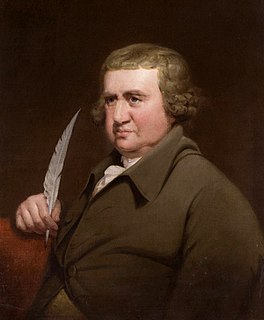Top 253 Morrow Quotes & Sayings - Page 5
Explore popular Morrow quotes.
Last updated on April 17, 2025.
It is very different to make a practical system and to introduce it. A few experiments in the laboratory would prove the practicability of system long before it could be brought into general use. You can take a pipe and put a little coal in it, close it up, heat it and light the gas that comes out of the stem, but that is not introducing gas lighting. I'll bet that if it were discovered to-morrow in New York that gas could be made out of coal it would be at least five years before the system would be in general use.
Look not too long in the face of the fire, O man! Never dream with thy hand on the helm! Turn not thy back to the compass; accept the first hint of the hitching tiller; believe not the artificial fire, when its redness makes all things look ghastly. To-morrow, in the natural sun, the skies will be bright; those who glared like devils in the forking flames, the morn will show in far other, at least gentler, relief; the glorious, golden, glad sun, the only true lamp—all others but liars!
To-morrow would bring its own trial with it; so would the next day, and so would the next; each its own trial, and yet the very same that was now so unutterably grievous to be borne. The days of the far-off future would toil onward, still with the same burden for her to take up, and bear along with her, but never to fling down; for the accumulating days, and added years, would pile up their misery upon the heap of shame.
One of the most appalling comments on our present way of life is that at one time half of all the beds in our hospitals were reserved for patients with nervous and mental troubles, patients who had collapsed under the crushing burden of accumulated yesterdays and fearful tomorrows. Yet a vast majority of those people would be walking the streets today, leading happy, useful lives — if they had only heeded the words of Jesus: “Have no anxiety about the morrow”; or the words of Sir William Osler: "Live in day-tight compartments."
So erst the Sage [Pythagoras] with scientific truth In Grecian temples taught the attentive youth; With ceaseless change how restless atoms pass From life to life, a transmigrating mass; How the same organs, which to-day compose The poisonous henbane, or the fragrant rose, May with to-morrow's sun new forms compile, Frown in the Hero, in the Beauty smile. Whence drew the enlighten'd Sage the moral plan, That man should ever be the friend of man; Should eye with tenderness all living forms, His brother-emmets, and his sister-worms.
Listen to the Exhortation of the Dawn! Look to this Day! For it is Life, the very Life of Life. In its brief course lie all the Verities and Realities of your Existence. The Bliss of Growth, The Glory of Action, The Splendor of Beauty; For Yesterday is but a Dream, And To-morrow is only a Vision; But To-day well lived makes Every Yesterday a Dream of Happiness, And every Tomorrow a Vision of Hope. Look well therefore to this Day! Such is the Salutation of the Dawn!
The night was at her disposal. She might walk back to Great Mop and arrive very late; or she might sleep out and not trouble to arrive till to-morrow. Whichever she did Mrs Leak would not mind. That was one of the advantages of dealing with witches; they do not mind if you are a little odd in your ways, frown if you are late for meals, fret if you are out all night, pry and commiserate when at length you return. Lovely to be with people who prefer their thoughts to yours, lovely to live at your own sweet will, lovely to sleep out all night!
In America, we hurry-which is well; but when the day's work is done, we go on thinking of losses and gains, we plan for the morrow, we even carry our business cares to bed with us...we burn up our energies with these excitements, and either die early or drop into a lean and mean old age at a time of life which they call a man's prime in Europe...What a robust people, what a nation of thinkers we might be, if we would only lay ourselves on the shelf occasionally and renew our edges!
Our moods do not believe in each other. To-day I am full of thoughts, and can write what I please. I see no reason why I should not have the same thought, the same power of expression, to-morrow. What I write, whilst I write it, seems the most natural thing in the world; but yesterday I saw a dreary vacuity in this direction in which now I see so much; and a month hence, I doubt not, I shall wonder who he was that wrote so many continuous pages. Alas for this infirm faith, this will not strenuous, this vast ebb of a vast flow! I am God in nature; I am a weed by the wall.
But the great artists like Michelangelo and Blake and Tolstoi--like Christ whom Blake called an artist because he had one of the most creative imaginations that ever was on earth--do not want security, egoistic or materialistic. Why, it never occurs to them. "Be not anxious for the morrow," and "which of you being anxious can add one cubit to his stature?" So they dare to be idle, i.e. not to be pressed and duty-driven all the time. They dare to love people even when they are very bad, and they dare not to try and dominate others to show them what they must do for their own good.
1.Never put off till to-morrow what you can do to-day. 2.Never trouble another for what you can do yourself. 3.Never spend your money before you have it. 4.Never buy what you do not want, because it is cheap; it will be dear to you. 5.Pride costs us more than hunger, thirst, and cold. 6.We never repent of having eaten too little. 7.Nothing is troublesome that we do willingly. 8.How much pain have cost us the evils which have never happened. 9.Take things always by their smooth handle. 10.When angry, count ten, before you speak; if very angry, a hundred.
I endeavor to drink deep of philosophy, and to be wise when I cannot be merry, easy when I cannot be glad, content with what cannot be mended, and patient where there is no redress. The mighty can do no more, and the wise seldom do as much. ... I am resolved to make the best of all circumstances around me, that this short life may not be half lost in pains ... Between the periods of birth and burial, I would fain insert a little happiness, a little pleasure, a little peace: to-day is ours, yesterday is past, and to-morrow may never come.












